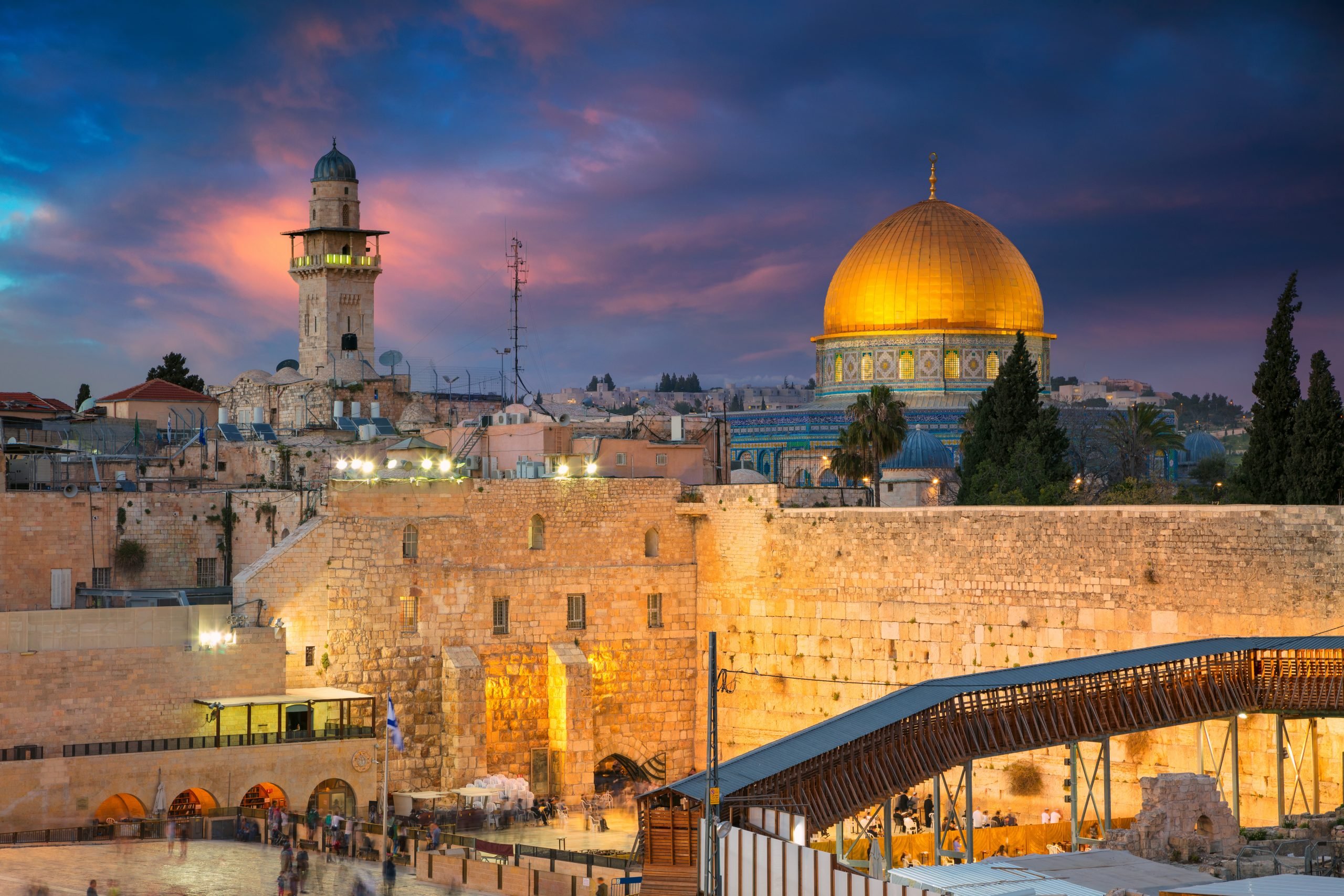
You’ve probably heard that Jerusalem has religious significance to Jews, Christians, and Muslims – but why exactly, and how is that importance expressed? What does each community believe about the Holy City?
Dive in to learn more about the fascinating spiritual history of the city claimed by each of the major Abrahamic faiths!
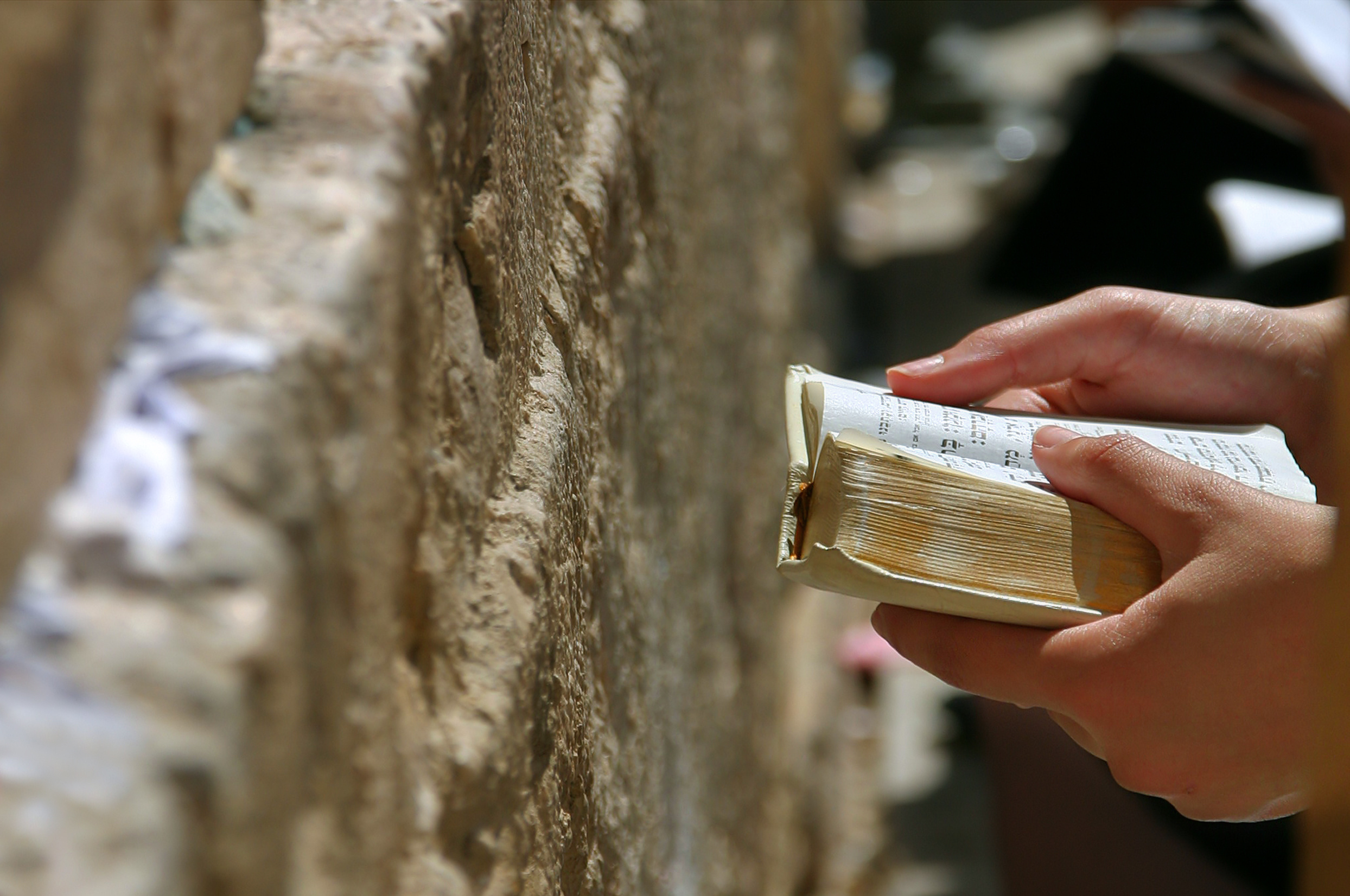
For Jews, Jerusalem is the holiest place in the world, and the site of the remnants of the ancient Holy Temple that was once the center of Jewish religious and cultural life. The Temple was built on the site that is believed to have been where the Binding of Isaac took place, the near-sacrifice by Abraham of his son to Isaac in the Hebrew Bible, which proved Abraham’s devotion to God.
Abraham called the place “the mountain where God is seen” (Genesis 22:14), and it was where he entered the covenant with God – an event marking the beginning of the special Jewish relationship with the Divine. So it was only fitting that many years later the Jewish Temple would be built on this holy ground, officially representing the continuation of the unique relationship between God and the Jewish people.
The Holy Temple was where Jewish worship took place as led by the Priests and Levites, such as holiday services and sacrifices, until its destruction by the Roman army in 70 CE. It also contained an inner chamber called the “Holy of Holies” that was believed to contain God’s presence – the closest one could get to the Divine, accessible only to the High Priest once a year on Yom Kippur, and the most sacred place on earth.
Due to the importance of the Temple, Jerusalem had also become the religious, cultural, and political center of Jewish life.
Even after the destruction of the Temple and the exile of most Jews from Jerusalem, it had remained the holiest and most important place in the Jewish faith and culture. Judaism still remembers the Holy Temple and reveres its holy ground, and hopes for its eventual rebuilding. Jews around the world pray facing towards Jerusalem, and the city features very prominently in Jewish art, liturgy, culture, and Zionism. Throughout history Jews everywhere had longed to return to Jerusalem, and the unification of the city following the 1967 Six-Day War remains a poignant event commemorated both in Israel and in the Jewish diaspora.
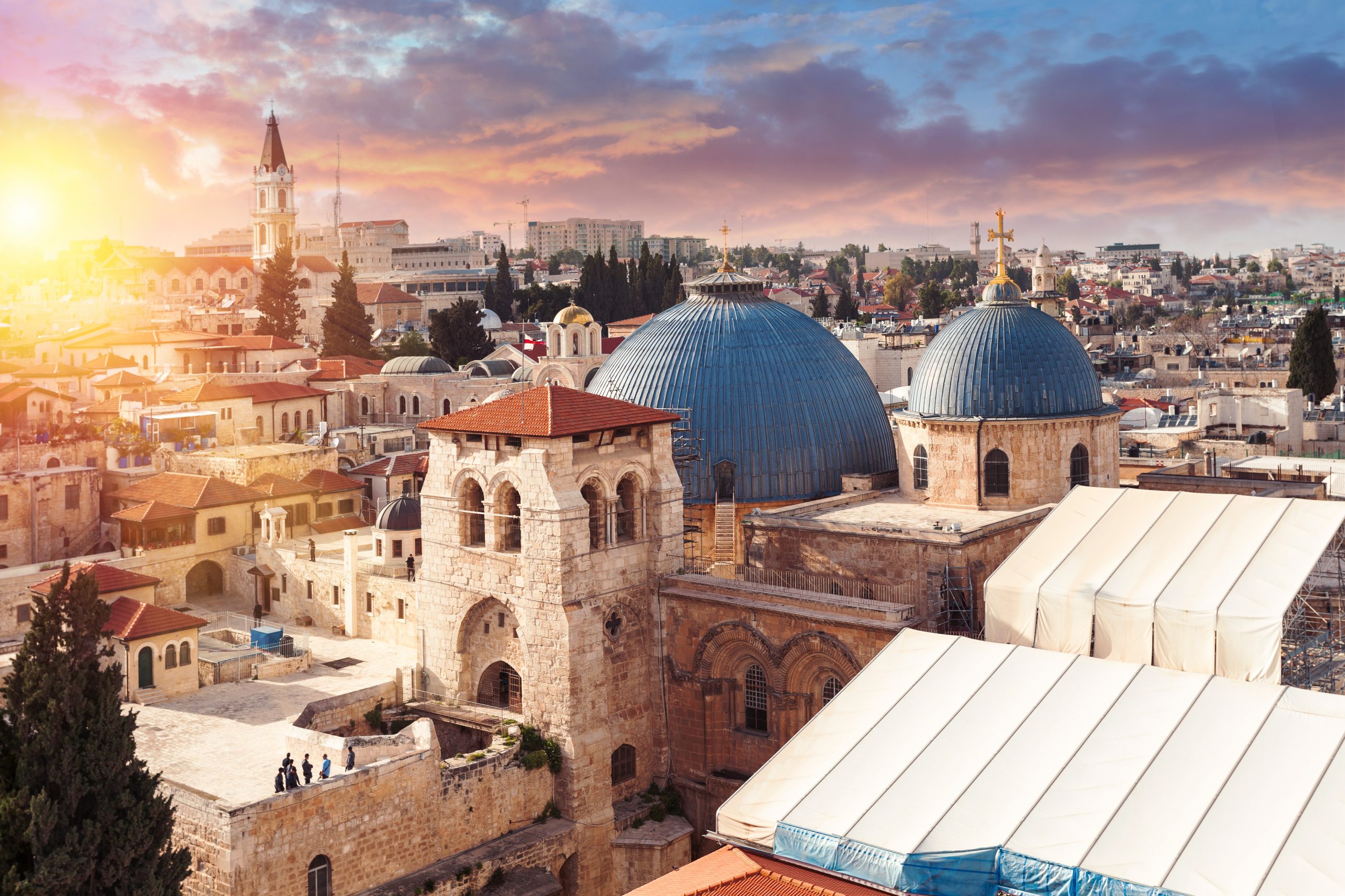
The city of Jerusalem has important religious significance to Christians as well, as it was the site of a number of key events in the narrative of the Christian faith: the Last Supper, Crucifixion, death, burial, and resurrection of Jesus, as well as some of the notable moments of his ministry as recorded in the Gospels.
A large, centuries-old church complex known as the Church of the Holy Sepulchre stands in the Old City of Jerusalem to this day, marking the exact locations where Christians believe Jesus was crucified and buried. It has drawn countless pilgrims throughout history, who often risked their lives on perilous journeys just to see the Holy Land. Other Christian sites mark spots such as the believed locations of the Last Supper and Jesus’s ascension into Heaven, and numerous churches throughout Jerusalem are dedicated to other Christian figures including the Virgin Mary and John the Baptist.
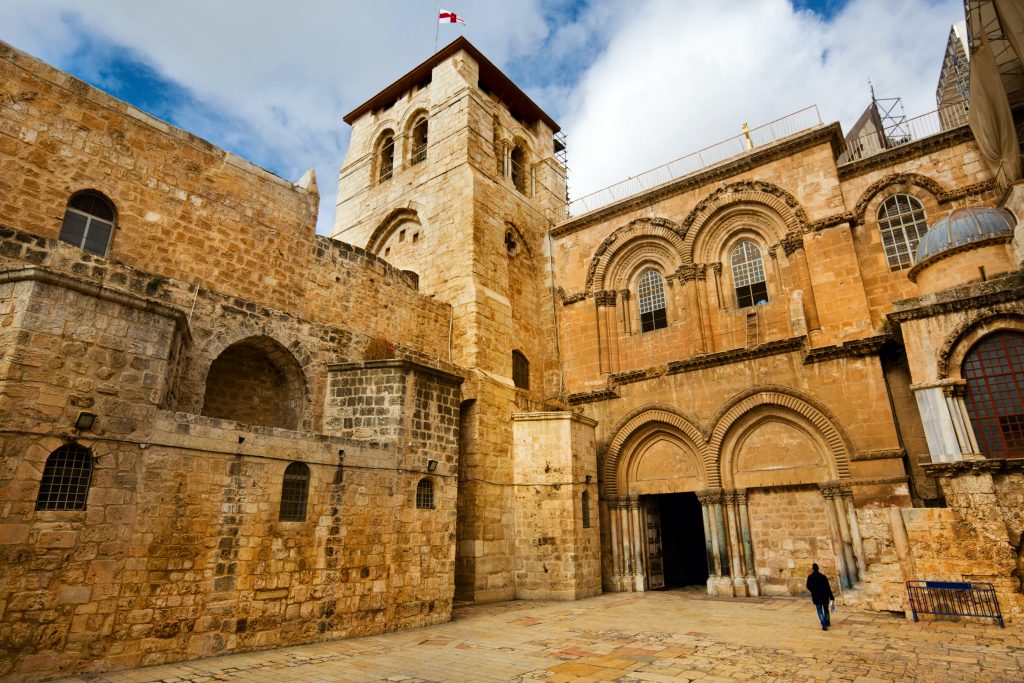
Today, many different Christian religious orders and sects are represented in the city of Jerusalem, as they hold responsibility and stewardship over these key sites. The Old City of Jerusalem has a dedicated Christian Quarter containing the Church of the Holy Sepulchre as well as other sanctuaries and monasteries, and a special Armenian Quarter housing the Armenian Christian community.
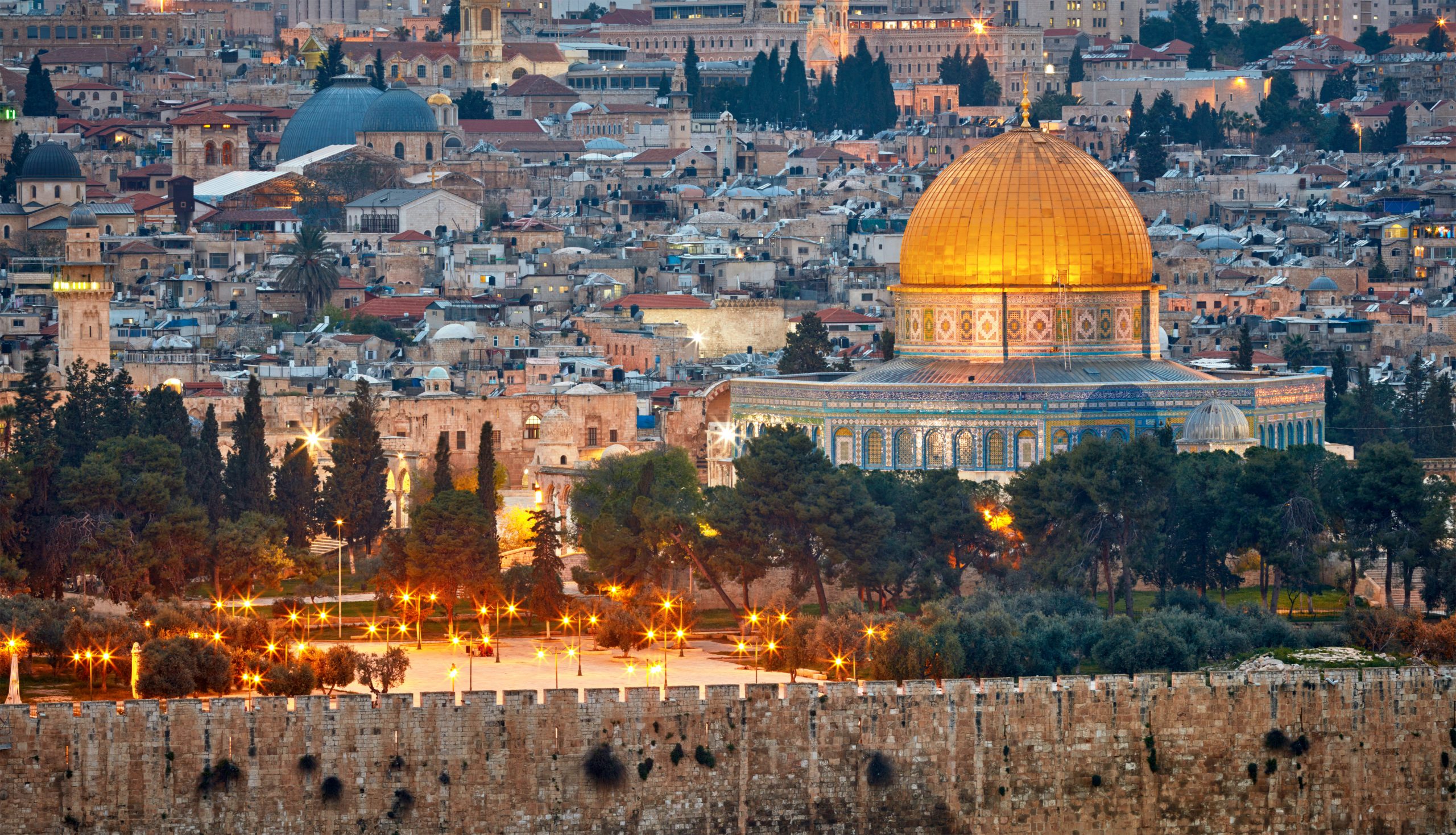
Jerusalem is also a holy city for Muslims, for multiple reasons, and has had a significant Muslim presence for centuries. For one, just like in Christianity, Islam considers it to be the site of the key events in the life of Jesus, an important teacher and prophet in the Muslim faith.
It also contains the place where Islam’s key figure, the prophet Muhammad, is believed to have ascended to Heaven and conversed with other prophets before returning to earth. This happens to be the same location where Jews believe Abraham almost sacrificed Isaac – and where Muslims believe Abraham almost sacrificed Ishmael, from whom the Arab nation is said to be descended. A large shrine was built on the spot in the 7th century, on some of the ruins of the Jewish Temple, and remains today and is known as the Dome of the Rock.
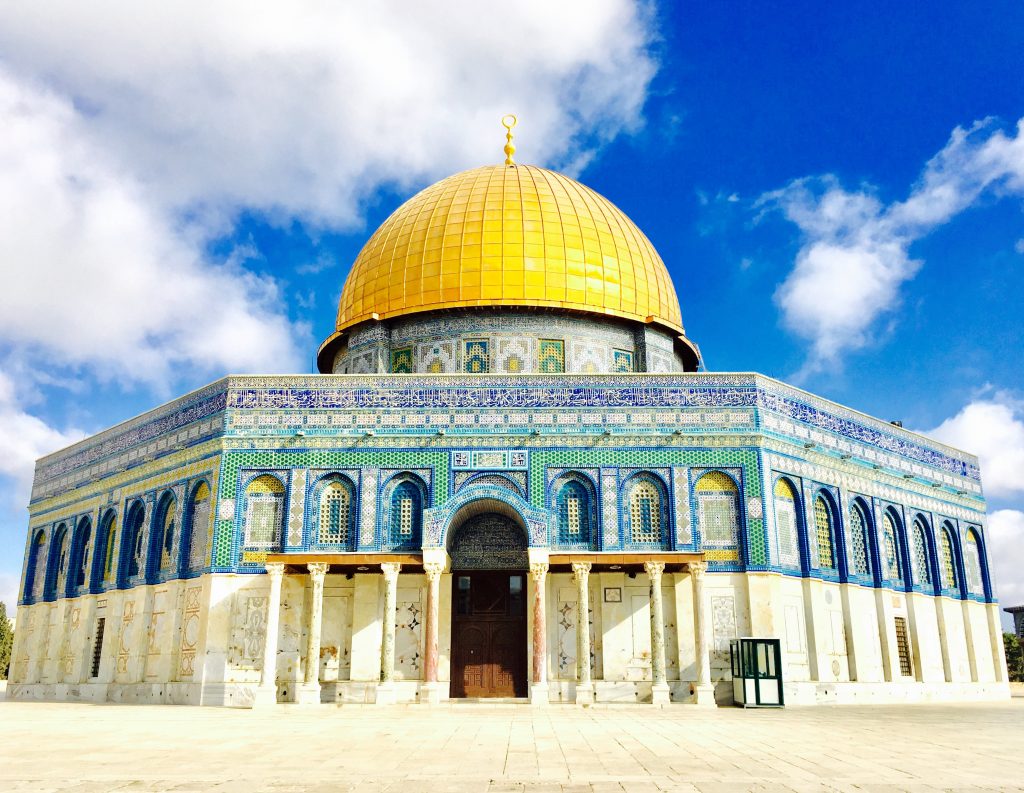
The Dome of the Rock is considered the third-holiest place in Islam, after Mecca and Medina, and is of particular cultural importance to the Muslim community of Jerusalem and the rest of the region. It is also one of the most iconic structures in the city of Jerusalem, with a golden dome that gleams in the sunlight and can be seen from miles away.
Now that you know a bit more about the city of Jerusalem and its special, unique significance to the major Abrahamic faiths, check out our stunning Jerusalem gifts made in the Land of Israel – and bring the Holy City home to you!
Subscribe to JudaicaWebStore mailing list to receive updates on new arrivals, discounts and special offers
IL GLOBAL INC
3 Germay Dr Ste 5 PMB
23545 Wilmington, DE 19804,
USA





Owned by IL GLOBAL INC maintains its offices and warehouse in Jerusalem, Israel.© 1999-2024 Buy unique Israeli Judaica, for sale exclusively online
Owned by JWG Ltd, maintains its offices and warehouse in Jerusalem, Israel. © 1999-2022 JWG Judaica and Dead Sea Cosmetics

